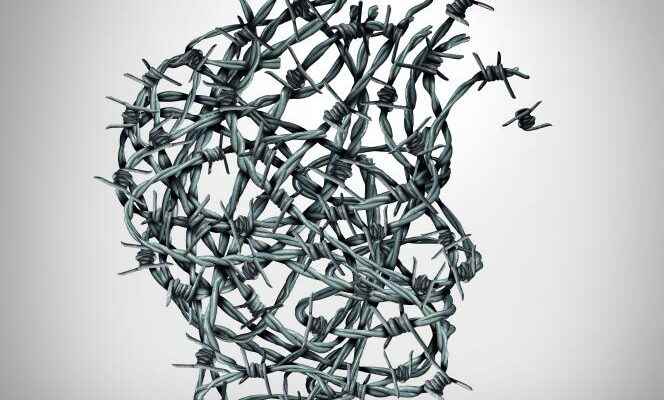In what mental state do the approximately 60,000 to 70,000 people released from prison each year leave? The first results of the Mental Health in Outgoing Prison Population (SPCS) study, presented at the French Congress of Psychiatry in Lille on Saturday December 3, reveal that two-thirds of men and three-quarters of women have at least one psychiatric disorder. and/or addiction-related upon release.
Funded by the Directorate General for Health and Public Health France, as part of the Health roadmap for people placed under the control of justice, 2019-2022, the SPCS study should make it possible to obtain an inventory and “a look at care and support needs” of these released people, recalled the professor of psychiatry Pierre Thomas, part of the team at the Lille University Hospital carried out the investigation. Long-awaited results, while “the mortality of ex-prisoners in the five years following their release is four times higher than the average for the general population”said Dr. Thomas Fovet, psychiatrist and co-author of the study.
“We reiterate the finding of a very high prevalence of psychiatric disorders in prison in France”, commented the specialist. In a previous study carried out when entering detention, this time in the Nord and Pas-de-Calais and published in 2020, Doctor Fovet and his team had concluded that psychiatric disorders were on average three times more common than in the general population. According to the latest national study, which dates back to 2006, “36% of incarcerated people had a marked to severe psychiatric disorder”recalls the site APM news.
Post-traumatic stress
Finalized in September 2022, after two years of investigation, the SPCS study included 586 male respondents, in 26 randomly selected remand centres. Reserved for sentences or remaining sentences of less than two years and for people awaiting trial, remand centers account for a very large majority of people imprisoned in France. One hundred and thirty-one women, from all types of institutions, also took part. The data, declarative, were obtained in the thirty days preceding the release, by means of the MINI questionnaire (Mini International Neuropsychiatric Interview), which evaluates the list of psychiatric symptoms.
In detail, the study reveals that mood disorders (depression, for example) affect 30.4% of men and 53.4% of women; 31.9% of the men surveyed have anxiety disorders and 49% of them an addiction, when these figures reach 57.3% and 59.5% respectively for women. Post-traumatic stress disorder is particularly marked among women: 26.7%, against 10.9% among men. Moreover, the severity of their disorders is much higher than that of men.
You have 33.38% of this article left to read. The following is for subscribers only.
